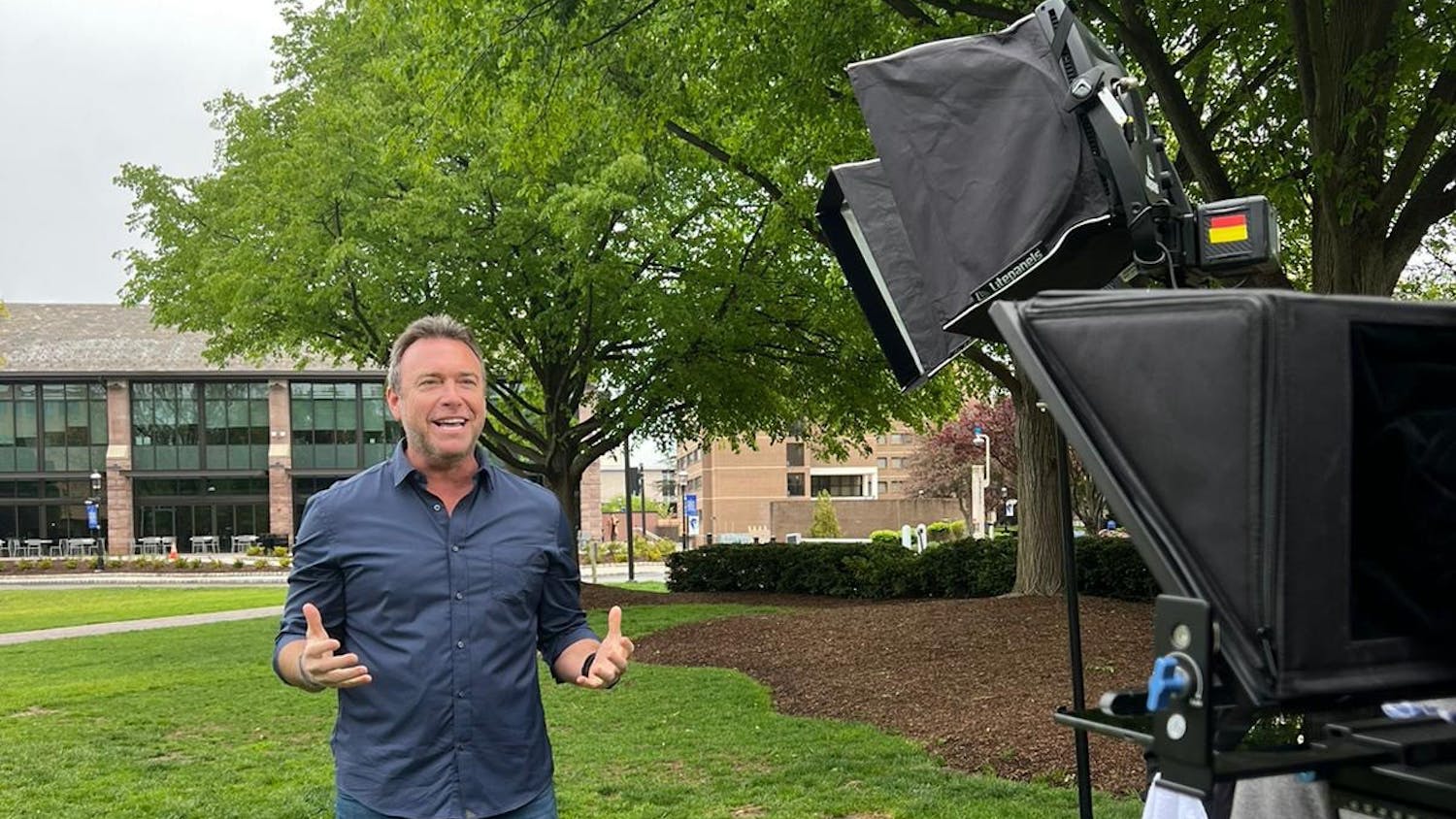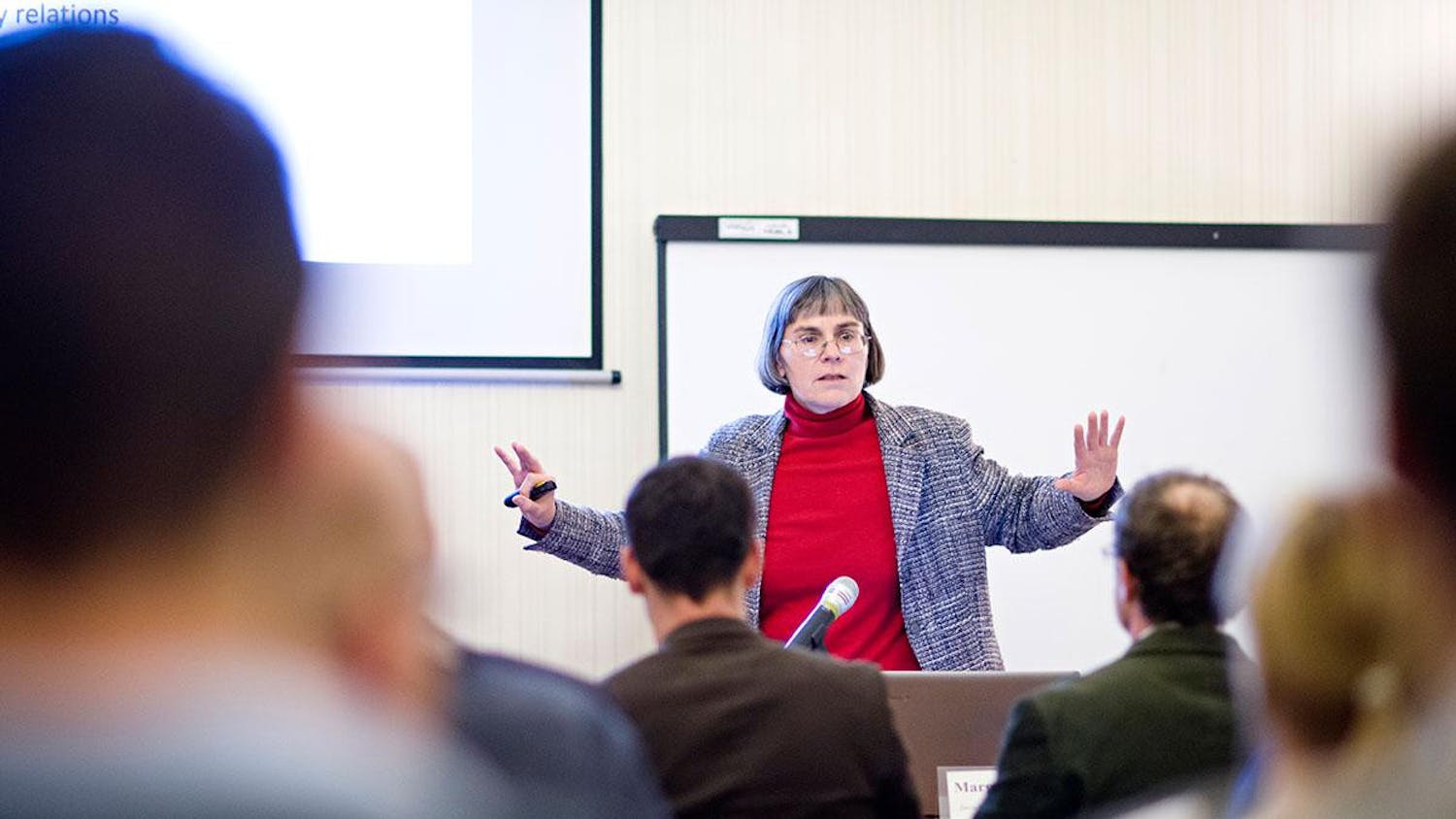 Feminist. Man hater. Abrasive. Harsh. Rough around the edges. Overbearing.
When people think of feminism, these are unfortunately the terms that come to mind, for some.
Yes, we’ve written about feminism before, and previous opinion articles have discussed what a modern feminist looks like and what the term means and promotes.
Specifically, on the SHU campus, I heard that the feminist club, Women for Women, would be spearheaded by two men this year.
Their first line of action? They changed the name from Women for Women to Gender Equality Now (GEN).
When I first heard about the change in leadership and the change in name, I have to admit, I was a bit peeved because one of the only feminist clubs on campus had now changed to a gender equality club, which may have similar goals, but was inherently different to me.
I had many questions. Where would women who had faced oppression in the patriarchy go to talk about these issues? How could two men, who haven’t experienced gender oppression, lead a club centered on gender equality? Would the focus shift to a male point of view?
Evan Amereihn began the year as the vice president of GEN, but was promoted to president when Chris Mazzacane stepped down recently.
Amereihn said that they changed the mission statement because it previously only focused on feminist ideals.
The organization wanted to expand upon those values and attempt to endorse much more than what only feminism may entail, he added.
The new mission statement of GEN is “For the promotion and understanding of gender and gender equality.”
Amereihn understands that there are preconceived notions of a man leading a gender equality group.
“I know there is undoubtedly a worry about a principle disconnect,” he said. “Put simply, how can a man truly understand the immense amount of issues that face not only straight women and men, but the LGBTQ+ community? How can he lead this organization and be its spokesman if he doesn’t even understand?”
Amereihn hit the nail on the head and knew exactly what my concerns were. He honestly said it better than I could have.
He responded to those questions, however, by agreeing that there is a degree of separation in his understanding of what it means to be alienated from society.
He said that his role as president is not to be the spokesperson for these problems, but to give others the opportunity to talk about these issues.
“As a ‘plain Jane white guy president,’ my job is to give others the chance to talk about the problems of our world and to understand those problems,” he said. “I am not the white knight male feminist who thinks people need to be saved by my gallant masculinity, which is what I seem to see on Facebook every other day. I want to facilitate discussion, provide a platform for others and lead by helping, not by ripping the microphone out of someone’s hands.”
The club prides itself on their inclusion of everyone in the discussion, which is so important in society today.
“Progress will not come if we exclude half the world from the conversation,” he said. “My logic as a philosophy major is that if men are the ones hurting women, then we have a moral duty to make sure our message reaches as many men as possible. If society is pushing women and the LGBTQ+ community down, we have to talk to the people who just don’t understand or haven’t even been included in the discussion.”
Amereihn said that the club focuses on topics such as discrimination, dealing with not only societal but institutional prejudice as well.
I have to say, that after interviewing Amereihn and learning more about the club, I’ve come to appreciate its values and lessons.
I realized that expanding feminist values can only do good things for women and the fight for all who are oppressed.
Rebecca White can be reached at rebecca.white@student.shu.edu.
Feminist. Man hater. Abrasive. Harsh. Rough around the edges. Overbearing.
When people think of feminism, these are unfortunately the terms that come to mind, for some.
Yes, we’ve written about feminism before, and previous opinion articles have discussed what a modern feminist looks like and what the term means and promotes.
Specifically, on the SHU campus, I heard that the feminist club, Women for Women, would be spearheaded by two men this year.
Their first line of action? They changed the name from Women for Women to Gender Equality Now (GEN).
When I first heard about the change in leadership and the change in name, I have to admit, I was a bit peeved because one of the only feminist clubs on campus had now changed to a gender equality club, which may have similar goals, but was inherently different to me.
I had many questions. Where would women who had faced oppression in the patriarchy go to talk about these issues? How could two men, who haven’t experienced gender oppression, lead a club centered on gender equality? Would the focus shift to a male point of view?
Evan Amereihn began the year as the vice president of GEN, but was promoted to president when Chris Mazzacane stepped down recently.
Amereihn said that they changed the mission statement because it previously only focused on feminist ideals.
The organization wanted to expand upon those values and attempt to endorse much more than what only feminism may entail, he added.
The new mission statement of GEN is “For the promotion and understanding of gender and gender equality.”
Amereihn understands that there are preconceived notions of a man leading a gender equality group.
“I know there is undoubtedly a worry about a principle disconnect,” he said. “Put simply, how can a man truly understand the immense amount of issues that face not only straight women and men, but the LGBTQ+ community? How can he lead this organization and be its spokesman if he doesn’t even understand?”
Amereihn hit the nail on the head and knew exactly what my concerns were. He honestly said it better than I could have.
He responded to those questions, however, by agreeing that there is a degree of separation in his understanding of what it means to be alienated from society.
He said that his role as president is not to be the spokesperson for these problems, but to give others the opportunity to talk about these issues.
“As a ‘plain Jane white guy president,’ my job is to give others the chance to talk about the problems of our world and to understand those problems,” he said. “I am not the white knight male feminist who thinks people need to be saved by my gallant masculinity, which is what I seem to see on Facebook every other day. I want to facilitate discussion, provide a platform for others and lead by helping, not by ripping the microphone out of someone’s hands.”
The club prides itself on their inclusion of everyone in the discussion, which is so important in society today.
“Progress will not come if we exclude half the world from the conversation,” he said. “My logic as a philosophy major is that if men are the ones hurting women, then we have a moral duty to make sure our message reaches as many men as possible. If society is pushing women and the LGBTQ+ community down, we have to talk to the people who just don’t understand or haven’t even been included in the discussion.”
Amereihn said that the club focuses on topics such as discrimination, dealing with not only societal but institutional prejudice as well.
I have to say, that after interviewing Amereihn and learning more about the club, I’ve come to appreciate its values and lessons.
I realized that expanding feminist values can only do good things for women and the fight for all who are oppressed.
Rebecca White can be reached at rebecca.white@student.shu.edu.

Comments




